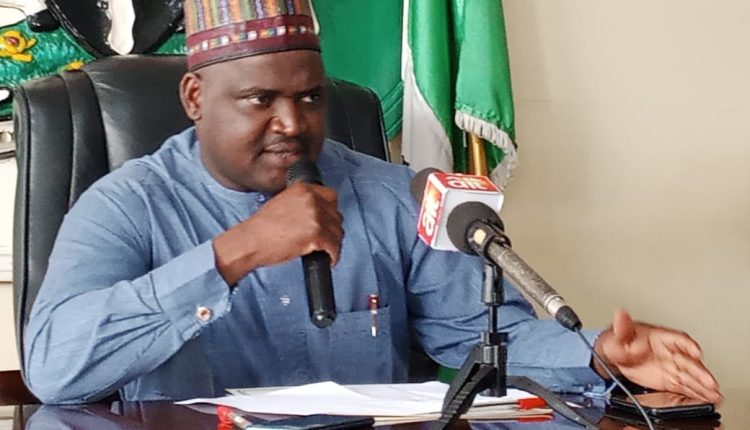By Daniel Tyokua
The Chairman of Abuja Municipal Area Council (AMAC), Christopher Maikalangu, has urged the residents to promote activities that will keep their environment clean and free from mosquito.
He gave the charge during the flag-off ceremony of the 2024 malaria day intervention at Kabusa primary healthcare centre on Thursday.
Maikalangu said his government will continue to provide the necessary support that would help agencies and stakeholders in protecting lives of the people.
He said, “World Malaria Day is observed on April 25th of every year and the theme for this year is ‘Accelerating the fight against malaria for a more equitable world’.
“The initiative is to highlight the burden of malaria and the need for continued investment and sustained political commitment for malaria prevention and control in our various communities.
“Malaria is a killer disease that is caused by the bite of female anopheles mosquitoes. It has continued to be a major public health issue because and is capable of killing both children and adult alike. The major symptoms of malaria are headache, fever, vomiting and sometimes diarrhea.
“You will agree with me that most malaria cases occur during rainy season and many of our children under five years and pregnant women have died due to malaria. The number of people that died due to malaria is enormous.
“Let me use this opportunity to call on our traditional rulers, religious leaders, women leaders, youth leaders and other community stakeholder to join hands together to maintain healthy environment by keeping our surroundings clean, clear bushes around us.
“Clear anything that block drainages and sleep under the insecticide treated nets to avoid fallen victim of this deadly disease. I wish to call on all the resident to take advantage of our health facilities to get medication for malaria and other ailments, because untreated malaria can lead to can lead to other severe diseases like kidney failure and death.
The Supervisory Councillor for Health in AMAC, Tunji Faoye, emphasised the council’s commitment to health interventions in the country, stating that the council will conduct routine malaria treatment programmes monthly, visiting households to administer malaria medicine and distribute treated mosquito nets.
Faoye explained that the initiative is part of a broader effort that includes interventions for polio, disease outbreaks, immunization, tuberculosis, and HIV/AIDS.



